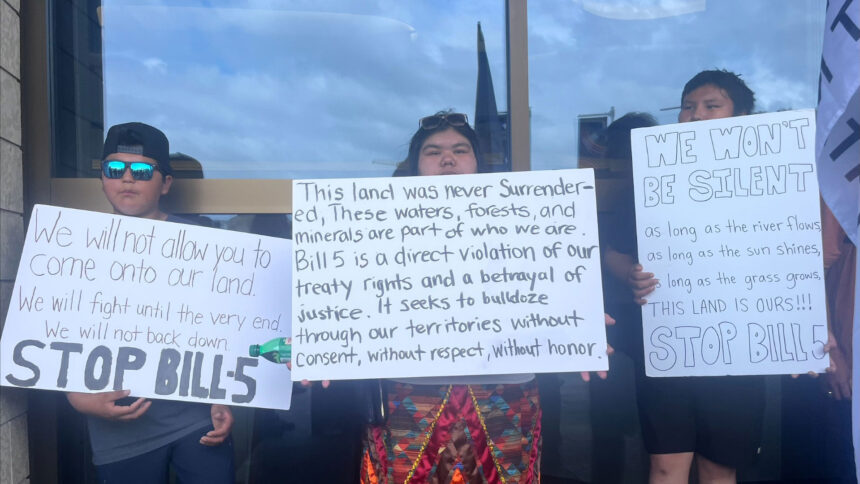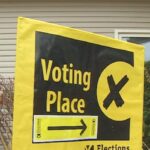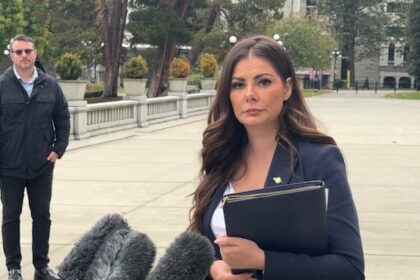First Nations leaders left last week’s two-day summit with a clear message for Prime Minister Mark Carney: this isn’t consultation. “ Consultation is going to have to be much more robust than this meeting,” said Chief Derek Nepinak of the Minegoziibe Anishinabe in Manitoba. “What’s going to have to happen is at the community level, on the ground, proponents and government are going to have to win the community over, and that means sitting down, genuine goodwill, real consultation standards with opportunity.” Held behind closed doors in Ottawa on July 16 and 17, the meeting brought together chiefs and senior federal officials to discuss Carney’s plan to fast-track major development projects in the name of “nation-building” to lessen Canada’s trading dependence on America. While the government initially framed the event as part of its consultation efforts, Indigenous leaders pushed back. Federal officials later softened their language, calling the summit a “first step,” although they offered few details on what the next step might look like. APTN News reached out to the Prime Minister’s office for comment about follow-up. We did not receive a reply at the time of publication. First Nations leaders didn’t dance around the word consultation—they told Ottawa it must include community-level dialogue, provinces at the table, possible Kelowna-style round tables, and full recognition of free, prior and informed consent as laid out in the United Nations Declaration on the Rights of Indigenous Peoples (UNDRIP). It wouldn’t be as fast as Carney said he wants to move. But they left behind several clear road maps to work with. Tripartite talks needed, regional voices must be included Assembly of Manitoba Chiefs say they want to be included at Premier’s table.Photo: Karyn Pugliese Several First Nations leaders say the federal government should immediately include Indigenous leaders in meetings with premiers—a demand they’ve repeated since Carney began working with the provinces and territories to fast-track development projects. “ We want to see the implementation of our treaties, the protection of our treaties. We want to see a Sec. 35 rights framework, and we want to see a First Ministers’ meeting where the provincial governments are at the table because they’re the ones who control the resources and the land,” said Nepinak, as sessions wrapped up. “At the end of the day, we need a tripartite conversation. I think that’s a message that we all wanted to get across, and I think it’s been shared and understood.” That message appears to have been heard—at least in part. Indigenous advocacy organizations have been invited to join the first day of the three-day premiers’ meeting beginning July 21. But the invitation was only extended to three national organizations: the Assembly of First Nations (AFN), the Métis National Council, and the Native Women’s Association of Canada. Assembly of Manitoba Chiefs Grand Chief Kyra Wilson expressed disappointment, saying regional representation had been emphasized as essential during last week’s summit. “Inviting regional First Nations leadership isn’t just a symbolic gesture—it’s about getting the right people at the table to speak to the realities in their territories,” Wilson said in a news release Monday. “Manitoba’s First Nations bring a depth of knowledge that is critical to understanding how trade policy affects people on the ground, especially in the North and across the border.” Wilson is calling on Manitoba Premier Wab Kinew and Carney to extend an invitation to regional First Nations leaders ahead of Tuesday’s session. A Kelowna-type process? Chief Jeff Copenace scrums with journalists outside First Nations Summit meeting. Photo: Karyn Pugliese Chief Jeff Copenace of Onigaming First Nation nearly skipped the summit, but after consulting his community, he came with a mandate. The remote northern community has been under a state of emergency for a decade due to a suicide crisis, and he said they lack the capacity to focus on energy projects. Copenace served as a special advisor to Prime Minister Paul Martin from 2003 to 2006 during the lead-up to the Kelowna Accord—a $5 billion plan to close gaps in education, health, and other outcomes for Indigenous peoples. Though the deal died with the Martin government, it followed an 18-month process with separate tables for First Nations, Métis, and Inuit. Copenace believes a similar approach could work for the One Economy Law. “That was a series of round tables where the issues were prioritized by First Nations at the time—and the Métis Nation and the Inuit as well,” said Copenace. “In this particular case, when you’re talking about natural resources in the northern parts of the territories, that’s where most of the natural resources are. So I would be targeting those regions. I would be hosting sessions with my ministers as quickly as possible.” “And I would make sure that all the proper partners were at the table. And so that probably leads to a First Ministers’ Meeting. That probably means that the provinces and territories need to be involved—and probably also means that some representatives from industry need to be at the table as well.” More: Leaked tape: ‘If the provinces aren’t trying hard enough, we’ll bring them up’ Carney tells chiefs Bill C-5: path to prosperity or threat to sovereignty? First Nations youth from the Ring of Fire denied entry to Carney’s First Nations summit Implementing UNDRIP is key, leaders say Mohawk Council of Kahnawà:ke Grand Chief Cody Diabo left the summit early. He says he is frustrated government is acting like they don’t know what consultation is. Photo: Karyn Pugliese Several times during the two-day summit, and in scrums and interviews outside the meeting room, First Nations leaders pushed the government saying they wanted a guarantee of free prior and informed consent, including the right to say no to a project Each time the government side-stepped on the issue saying they would not choose projects that First Nations weren’t interested in, so it would not come to that. Mohawk Council of Kahnawà:ke Grand Chief Cody Diabo left the summit early, frustrated that the government was acting as if it didn’t already know what consultation is supposed to look like. “All they have to do is check their archives. DFO (Department of Fisheries and Oceans) will have it. Transport Canada will have it. Environment will have it. You name it. All the government agencies that we have to do consultation with will have it,” he said in an interview. “They are saying ‘trust us.’ At the end of the day, that’s the same thing I’ve heard basically for 10 years under Trudeau: ‘Trust us,’” said Diabo. “ I do know there’s a court case right now where they’ve applied UNDRIP, the courts ruled in their favour, and now Canada’s appealing that decision. But anytime something goes our way, they’re appealing it in court. So why appeal that decision, why not let it stand?” B.C. Regional Chief Terry Teegee, who holds the UNDRIP portfolio for the AFNssembly of First Nations, said the federal government has stalled the process meant to implement UNDRIP in practice. After Canada adopted the declaration into law in 2021, a national action plan was created with more than over 130 measures meant to be negotiated with Indigenous partners. “Over the last several years there has been some good commitment—not only passing legislation, but enacting the National Action Plan measures,” said Teegee. “Right now, the problem is there’s not enough resources and there’s no current plan to implement all the action plan measures. So, right now, I think the process is stalled and perhaps even failing.” The one- to two-year window Carney was hoping for to get projects approved, may not be possible if he doesn’t reconcile with the consultation processes First Nations are accustomed to, added says Chief Nepinak. “ I don’t think so. I think that it’s a conversation starter. To say that we’re going to expedite some of these conversations and these processes—it’s a starter for a conversation.” With files from The Canadian Press Continue Reading
Broad consultation needed on One Economy Law, dont rush timelines: Indigenous leaders warn

Leave a Comment










